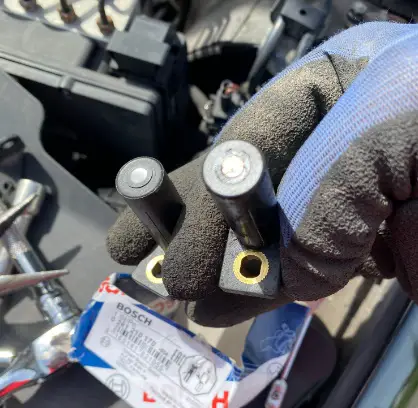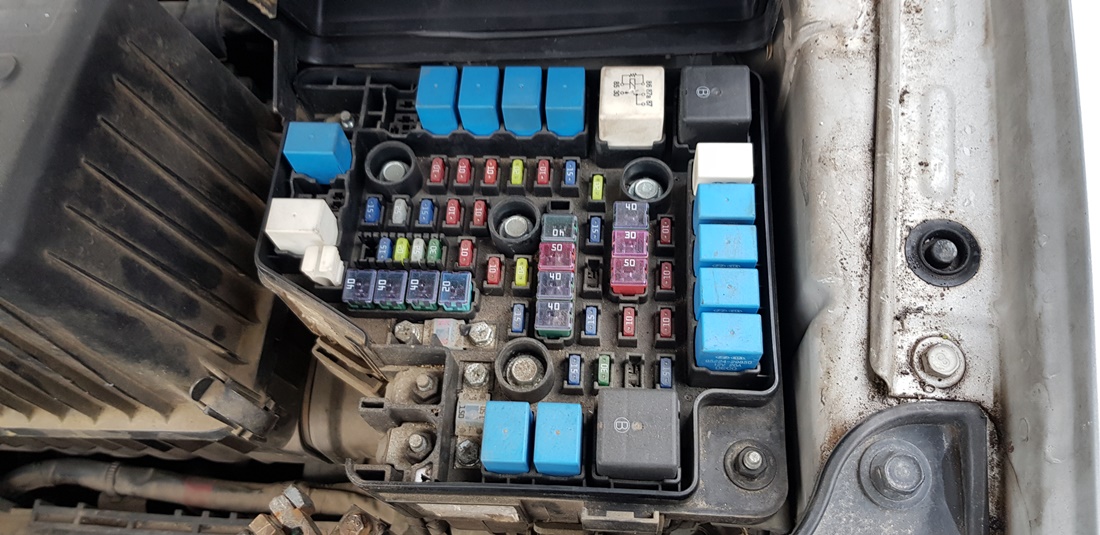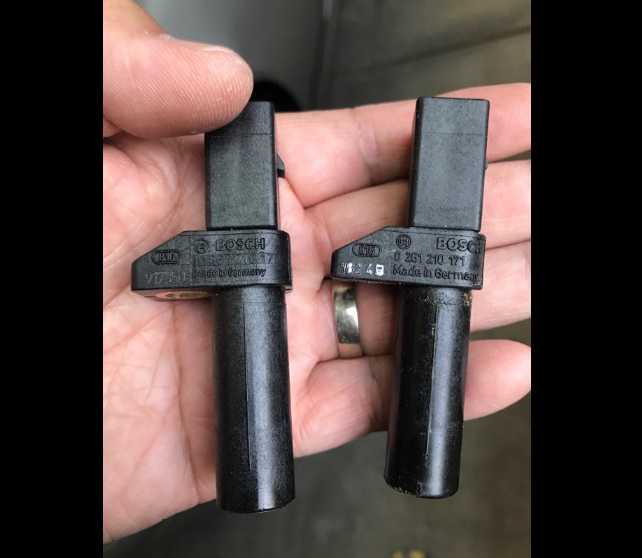A lot of people think that if they have a good alternator, their battery will never die.
This isn’t always the case.
In this blog post, we’ll take a closer look at the relationship between batteries and alternators, and try to explain why a car battery can die even with a good alternator.
Key Takeaway
- If the battery can’t hold a charge, it doesn’t matter how good the alternator is. The battery will still die.
- A bad alternator can ruin a good battery by overcharging it. This happens when the voltage reader isn’t working.
- A new battery can last up to six months with a bad alternator.
- If you replaced a bad alternator, it is best if you change the battery as well. There is a good chance that the bad alternator damaged the battery cells over time.
- A new alternator can’t drain an old battery. It is more likely that the old battery isn’t able to hold a charge anymore.
Can a Battery Die With a Good Alternator?

A battery can indeed die even with a good alternator, as the battery’s lifespan is influenced by factors other than the alternator, such as age, temperature, and usage.
Even with a perfectly functioning alternator, a car battery can still die. The alternator’s role is to maintain the battery’s charge while the engine is running, but it doesn’t play a part in how long the battery itself lasts. A battery’s lifespan typically ranges from three to five years and can be influenced by many factors.
For instance, extreme temperatures, both hot and cold, can affect a battery’s life. Cold weather can slow the chemical reaction inside of the battery, reducing its effectiveness, while heat can cause the battery to discharge faster and damage its internal components.
Usage also plays a role. If you only drive short distances, your battery may not get fully recharged in between trips, which can lead to a decrease in overall battery life. Additionally, leaving lights on or accessories plugged in when the car is off can drain the battery.
The age of the battery is another factor. Over time, a battery’s performance will naturally degrade, and after about three to five years, it’s often time for a replacement.
How To Test a Bad Battery
Testing a bad battery involves several steps, including visual inspection, checking for a series of clicks when starting the car, and using a multimeter to measure voltage and dead cells.
Visual Inspection
The first step in testing a bad battery is a simple visual inspection. Check for any visible signs of damage such as leaks, corrosion around the terminals, or a bulging case. These are clear indications that your battery may be in poor condition and could potentially be causing problems.
Listen for Clicks
When you try to start your car, if the battery can’t supply enough power to the starter motor, you’ll likely hear a series of rapid clicks. This is a telltale sign of a dead or dying battery. If you hear these clicks, it’s a strong indication that your battery needs to be tested further or replaced.
Voltage Test with a Multimeter
A more precise way to test a car battery is by using a multimeter, a tool that measures electrical voltage, current, and resistance. With the car off, a healthy battery should read between 12.4 and 12.7 volts. If the reading is less than 12.4 volts, your battery is undercharged. If it’s significantly lower – below 12 volts – your battery is likely failing.
Test for Dead Cells
Another test you can perform with a multimeter involves checking for dead cells within the battery. This is done by measuring the voltage drop across each cell in the battery. If one cell shows a significantly lower voltage drop compared to the others, it might be ‘dead’ or failing, which can cause the entire battery to underperform or fail.
How To Test an Alternator In a Car
Testing an alternator in a car involves several steps, such as examining the warning light, performing a headlight test, and checking the voltage levels with the engine running and off.
Examine the Warning Light
The first indication of a potential issue with your alternator is often the illumination of the battery warning light on your dashboard. This light usually depicts a battery and should light up when you start your car but should turn off once the car is running. If it stays on or comes on while you’re driving, this could indicate a problem with your alternator.
Perform a Headlight Test
Another simple way to test your alternator is by observing your headlights. Start your vehicle and let it run, then switch on your headlights. If they are unusually dim or brighten as you rev the engine, this could suggest that your alternator is not providing a consistent power supply.
Check Voltage Levels with Engine Off
Before starting your car, check the voltage level of your battery. A healthy battery should read between 12.4 and 12.8 volts. This will give you a baseline for the next step.
Check Voltage Levels with Engine Running
After checking the voltage with the engine off, start your car and let it run for a few minutes. Then, check the voltage again. If the alternator is working correctly, the voltage should increase to somewhere between 13.8 and 14.2 volts. This indicates that the alternator is charging the battery. If the voltage doesn’t increase when the engine is running, or if it exceeds 14.8 volts, this could mean there’s an issue with your alternator.
What Causes a Battery To Die
Several factors can cause a car battery to die, including old age, extreme temperatures, persistent electrical drains, loose or corroded connections, and heavy accessory power use, especially during short drives.
Old Age
Batteries have a finite lifespan, typically around 3-5 years. Over time, the battery’s ability to hold a charge diminishes, leading to eventual failure. Regular use and proper maintenance can prolong a battery’s life, but eventually, it will need to be replaced.
Extreme Temperatures
Intense cold or heat can weaken a battery’s performance or even cause it to die completely. Cold weather can slow down the chemical reactions inside the battery, reducing its efficiency, while high temperatures can accelerate these reactions, leading to quicker depletion of the battery.
Persistent Electrical Drains
Leaving your headlights or interior lights on when the car is not running can drain your battery. Similarly, other electrical devices left running, such as the radio or charging ports, can also deplete the battery if the vehicle is not running to recharge it.
Loose or Corroded Connections
Loose or corroded battery connections can prevent the battery from charging properly and disrupt the flow of electricity. Regular inspection and cleaning of the battery terminals can help maintain a strong connection and prevent premature battery death.
Heavy Accessory Power Use During Short Drives
Using a lot of accessory power, such as air conditioning, heated seats, and high-end audio systems, especially during short drives, can put a strain on the battery. The alternator may not have enough time to recharge the battery fully during short trips, leading to gradual depletion and eventual failure of the battery.
Can a Bad Alternator Ruin a Good Battery?

A bad alternator can indeed ruin a good battery, as the alternator is responsible for recharging the battery while the car is running and, if it’s not working properly, the battery can be drained and its lifespan reduced.
The alternator plays a crucial role in your car’s electrical system. Its primary job is to convert mechanical energy into electrical energy which keeps your battery charged while you’re driving.
If the alternator is faulty, it may not provide enough charge to the battery or, in some cases, provide too much, causing the battery to ‘overcharge’. Both scenarios can lead to damage and a significantly shortened lifespan for your battery.
In the case of undercharging, when the alternator isn’t providing enough power, the battery will have to work harder to compensate for the lack of energy. This puts extra strain on the battery and can cause it to die prematurely.
On the other hand, if the alternator is overcharging the battery, it can cause the battery to heat up, damaging its internal components and leading to failure says RepairSmith.
How Long Will a New Battery Last With a Bad Alternator?

A new battery’s duration with a bad alternator can range from a few hours to a full day depending on the load and driving conditions, but it’s important to note that this is only a temporary solution and the alternator should be repaired as soon as possible.
The alternator’s primary function in a vehicle is to keep the battery charged while the car is running. When the alternator isn’t working correctly, it won’t be able to maintain the battery’s charge.
A new, fully charged battery might be able to power a car for a few hours, or potentially even a full day if there’s minimal electrical load and driving conditions are favorable. However, this is not an ideal or sustainable situation.
Running a car with a bad alternator is a bit like running a marathon without drinking water – you might make it some distance, but eventually, you’re going to run out of energy.
The same holds true for your car. Without the alternator properly recharging the battery, the battery will eventually be drained of power and the vehicle will stop running.
It’s also important to remember that continually draining and recharging a car battery can shorten its lifespan. So while a new battery may keep your car running for a short period with a bad alternator, it’s not a long-term solution and could lead to more costs down the line.
Do I Need a New Battery After Replacing The Alternator?

Replacing the alternator does not necessarily mean you need a new battery, as the need for a battery replacement depends on the battery’s current condition and age, not solely on the status of the alternator.
When replacing the alternator, the state of your battery should be taken into account. If the battery is still in good health – it holds a charge well, isn’t too old, and hasn’t been subjected to extreme conditions – then it typically doesn’t need to be replaced when the alternator is.
The alternator and battery have different functions within the vehicle: the alternator keeps the battery charged while the vehicle is running, while the battery provides the initial power to start the vehicle.
However, if your battery has been consistently drained due to a bad alternator, it may have suffered damage that could reduce its lifespan. In this case, or if the battery is old and nearing the end of its typical lifespan (generally 3-5 years), replacing the battery alongside the alternator could be a good preventative measure.
Also, after replacing the alternator, it’s wise to ensure your battery is fully charged. A new alternator might struggle to recharge a severely discharged battery, which could lead to further issues.
Can a New Alternator Drain An Old Battery?

A new alternator should not drain an old battery; instead, it should help charge the battery while the vehicle is running, but if the battery is significantly aged or damaged, it may struggle to hold this charge.
An alternator’s primary role in your vehicle is to maintain the battery’s charge while the car is in operation. If you’ve replaced your old alternator with a new one, it should efficiently fulfill this role, thereby keeping your battery charged, not draining it.
However, the condition of the battery itself is a significant factor here. If the battery is old or has been damaged – maybe it’s been drained repeatedly or exposed to extreme conditions – it might struggle to hold the charge that the alternator is providing. This could give the impression that the new alternator is draining the battery, when in fact, it’s the battery’s inability to hold the charge that’s the issue.
In cases where the battery is struggling to hold a charge despite the presence of a new alternator, it’s often indicative that the battery itself needs replacing. Batteries typically have a lifespan of 3-5 years, and trying to extend their use beyond this point can lead to issues like the one described.
So, while a new alternator should not drain even an old battery, if you’re experiencing issues with battery drain after installing a new alternator, it’s likely that the battery itself is the problem. As always, if you’re uncertain, it’s best to have a professional mechanic check both your battery and alternator to ensure they’re functioning properly.
FAQs
Q: What is a car battery?
A: A car battery is a rechargeable device that supplies electrical energy to the vehicle. It provides the necessary power to start the engine and supplies electrical power to the various electrical components of the car.
Q: What is an alternator?
A: An alternator is a device in a vehicle that generates electrical energy and charges the car battery. It converts mechanical energy from the engine into electrical energy, which is used to power the car’s electrical systems and keep the battery charged.
Q: How does the alternator charge the battery?
A: The alternator charges the battery by using the mechanical energy from the engine to turn a rotor inside the alternator. As the rotor spins, it creates a magnetic field that induces an electrical current in the stator windings. This current is then rectified and sent to the battery to charge it.
Q: Can a battery be tested without removing it from the car?
A: Yes, it is possible to test a car battery without removing it from the vehicle. You can use a battery tester or a multimeter to measure the battery’s voltage and determine its health. However, for a more accurate assessment, it is recommended to have the battery tested by a professional using specialized equipment.
Q: Can a battery be recharged after it dies?
A: In many cases, a dead car battery can be recharged and brought back to life. You can use a battery charger or jump-start the vehicle to recharge the battery. However, if the battery has significant damage or has reached the end of its lifespan, it may need to be replaced.
Q: How long does a car battery last?
A: The lifespan of a car battery can vary depending on various factors such as the quality of the battery, driving habits, climate, and maintenance. On average, a car battery can last between 3 to 5 years. Regular maintenance, such as keeping the battery terminals clean and checking the charging system, can help prolong the battery’s life.
Conclusion and final thoughts
In conclusion, while it is possible for a battery to die even with a good alternator, there are many factors that can contribute to this issue.
It is important to regularly maintain and monitor both the battery and alternator to ensure their optimal performance.
Additionally, understanding the warning signs of a failing battery or alternator can help prevent any unexpected breakdowns.




